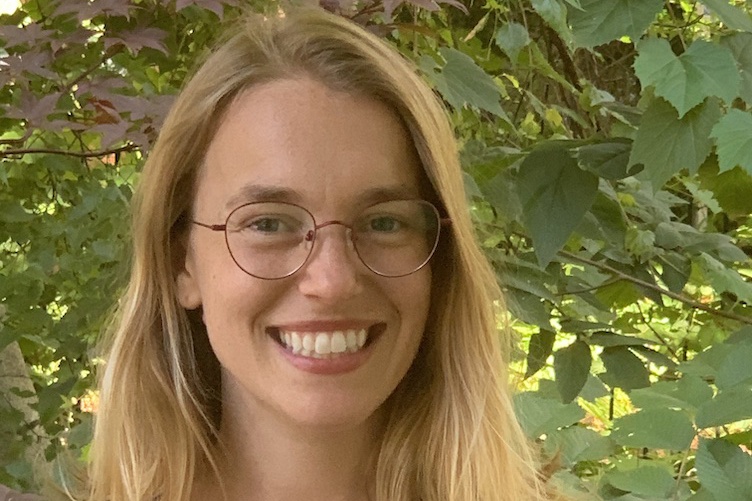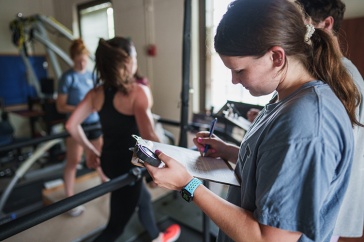
There’s a pretty big gap between a career in design research and one in occupational therapy, but Abigail Baker has found herself a bridge. Not only that, she’s been awarded a $10,000 scholarship to help her cross it.
Baker, an OT graduate student in the College of Health and Human Services, has taken the skills she honed during her seven years in design research and applied them to occupational therapy (OT), most recently with a scholarship from the Social Security Administration (SSA). During the next year, she will conduct a study on the impact of automation and technology on the job skills of workers with disabilities.
"I want to be part of the wave of understanding how emergent technology may affect people with disabilities and use my ethnographic lens to understand the stories of people on the ground.”
“A lot of people have been researching, thinking and writing about technology and the future of work lately, and I think for a good reason. The world is moving fast right now and in some ways COVID-19 has sped up workplace innovation while also leaving many workers quite vulnerable,” Baker says. “I want to be part of the wave of understanding how emergent technology may affect people with disabilities and use my ethnographic lens to understand the stories of people on the ground.”
During the fall of 2019, Baker became a research assistant to Vidya Sundar, assistant professor occupational therapy. Sundar is working on a project centered around testing job crafting (the different ways employees customize their jobs) intervention on workers with disabilities to see if and how it impacts their work experience.
“Hearing about so many people’s jobs was and is fascinating and has offered me a glimpse into the everyday life of workers with disabilities,” says Baker, adding that Sundar was the one who told her about the SSA grant. “Part of my attraction to OT is that its principles can be applied on both a micro and macro level. On one hand, OTs interact very intimately with clients recovering from or living with illness or disability. And the philosophy behind OT, especially the concept of ‘occupational justice,’ can be applied more broadly around questions of how we spend our time, and who has access to certain activities or spaces.”
Barbara White, associate professor of occupational therapy, first got Baker’s "wheels turning” when, while teaching the course Human Occupation, White posed questions about how changes in work, culture, assistive technology and the ability to prolong life might also change the role of some OT careers. Those questions coupled with the research Baker did with Sundar piqued her interest in automation.
Baker’s move from design research to occupational therapy sprang from a desire to do something health-related that would help people in their daily lives. She also credits her late grandmother, who went back to school in her 50s to become an occupational therapist and then started her own company treating Parkinson’s patients. Baker, a Dover, New Hampshire resident, has yet to decide where her OT career will take her; for now she is focusing on her research project.
“I’ve had to pivot my research to be completely remote due to COVID-19. Although I would have loved to conduct research in person, remote research will allow me to reach people from all over the country, which is cool,” she says. “Right now I’m fairly open as to what setting I want to work in. I think the most important thing to me is finding a supportive work environment with good mentorship. I might want to open up a private practice in the future, but I want to get some good experience beforehand.”
-
Written By:
Jody Record ’95 | Communications and Public Affairs | jody.record@unh.edu
















































